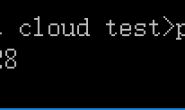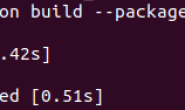图形类:一个很抽象的和强大的数据结构来保存许多不同种类的数据关系。
#!/usr/bin/env python # (c) Mark Janssen, this file is licensed under the GNU General Public License v2 found at <http://www.gnu.org/licenses> # email: dreamingforward@gmail.com """Graph class.""" #change a lot of these for loops to use faster map() function (see FAQ and QuickReference) #also: map/reduce/filter now work with any iterable object (including dictionaries!) #add persistence #XXX Use of exceptions for control flow may prevent seeing actual errors. Perhaps catch exception, plus error string and assert string is as expected from defdict import * #EdgeBaseType = int VertexBaseType = dict GraphBaseType = defdict _DEBUG = True _PROFILE = True NumberType = (int, float, long, complex) #for WVertex validation #should all non-verb methods (sum_in, in_degree, etc.) be properties?? class VertexCommon(VertexBaseType): """Various common vertex methods.""" #Add id property to determine id, given Vertex #XXX should clear() also remove in_vertices()? __slots__ = ['_graph', '_id'] #functioning as a sort of "variable declaration" list EDGEVALUE = 1 def __init__(self, graph, id, init={}): """Create a vertex object in graph. Assumes id already in graph. Will add tails in init as necessary.""" self._graph = graph #graph to which this vertex belongs self._id = id super(VertexCommon, self).__init__() self.update(init) def update(self, tails, edge_value=EDGEVALUE): #XXX limit tails to list or dict? """Add tails in sequence or mapping type to Vertex.""" if isinstance(tails, dict): for key, value in tails.iteritems(): #derived classes may override setitem so don't use dict.update self[key] = value else: #given iterable for key in tails: self[key] = edge_value add = update def discard(self, tail): """Removes tail(s) if present, otherwise does nothing. >>> g = Graph() >>> g.add(5, range(5)) >>> print g[5] {0, 1, 2, 3, 4} >>> g[5].discard(3) #remove single edge >>> g[5].discard(90) #discard of non-existent edge ignored >>> g[5].discard([0, 1, 90]) #discard multiple edges >>> print g[5] {2, 4} """ try: #single tail removal del self[tail] except LookupError: return #ignore non-existent tails except TypeError, error: #must have been given a tail list if not isinstance(tail, list): raise TypeError(error) for t in tail: #XXX inefficient if self is near empty try: del self[t] except LookupError: if not self: break #good place to check if self is empty yet... def in_vertices(self): #O(n) """Return iterator over the vertices that point to self. >>> g = Graph() >>> g.add(1, [2, 3, 4]) >>> g.add(2, [3, 2]) >>> list(g[2].in_vertices()) #XXX arbitrary order [1, 2] """ for head in self._graph.itervalues(): if self._id in head: yield head._id def in_degree(self): #O(n) """Return number of edges pointing into vertex. >>> g = Graph() >>> g.add(1, [2, 3, 4]) >>> g.add(2, [3, 2]) >>> g[1].in_degree(), g[2].in_degree(), g[4].in_degree() (0, 2, 1) """ return len(list(self.in_vertices())) out_vertices = VertexBaseType.iterkeys out_degree = VertexBaseType.__len__ def __getitem__(self, tail): """Return edge value or False if tail non-existent. >>> g = Graph(VertexType=WVertex) >>> g[1][3] False >>> g.add(1,3) >>> g[1][3] 1 """ return dict.get(self, tail, False) def __setitem__(self, tail, value): """Set edge value. If tail does not exist, it is created and added to graph if necessary. >>> g = Graph(VertexType=WVertex) >>> g[1][2] = 1 >>> g[1][3] += 1 #new tail (3): starts as value False (0), now add 1. >>> print g {1: {2: 1, 3: 1}, 2: {}, 3: {}} """ super(VertexCommon, self).__setitem__(tail, value) if tail not in self._graph and tail!=self._id: #XXX ?do this first to preserve invariants in case vertex addition fails self._graph.add(tail) def copy(self): raise NotImplementedError def __str__(self): """Return string of tail vertices with edge weight values. >>> g = Graph(VertexType=WVertex) >>> g.add(1, [1, 3, 4]); g.add(1, 3, 7) >>> print g[1] {1: 1, 3: 7, 4: 1} """ if _DEBUG: self._validate() if not self: return '{}' #nothing to sort keys = self.keys() keys.sort() return '{%s}' % ', '.join(["%r: %r" % (k, self[k]) for k in keys]) def _validate(self): """Assert Vertex invariants. >>> g = Graph() >>> g.add(1,2) >>> dict.__setitem__(g[1], 3, 1) #tail value 3 not in graph >>> g[1]._validate() Traceback (most recent call last): AssertionError: Non-existant tail 3 in vertex 1 >>> g.add(3,1) >>> g[3]._id = 2 >>> g._validate() #should call vertex validates too Traceback (most recent call last): AssertionError: _graph[_id] is not self """ hash(self._id) #id should be hashable assert isinstance(self._graph, Graph), "_graph attribute not a Graph" assert self._graph[self._id] is self, "_graph[_id] is not self" for t in self: assert t in self._graph, "Non-existant tail %r in vertex %r" % (t, self._id) class ReverseEdgeMixin(object): #could be used to make undirected graph? """Mixin to allow O(1) access to in_vertices. Inherit instead of or before VertexCommon.""" #XXX need doctests, also investigate slots issue (multiple bases have instance layout conflict) __slots__ = [] def __init__(self, *args): self.reverse = dict() #ReverseType()? super(ReverseEdgeMixin, self).__init__(*args) def in_vertices(self): """Return iterator over the vertices that point to self. >>> class myvertex(ReverseEdgeMixin, Vertex): ... pass >>> g = Graph(VertexType=myvertex) >>> g[1].add([2, 3, 4]) >>> g[2].add([3, 2]) >>> list(g[2].in_vertices()) #XXX arbitrary order [1, 2] Can also use: >>> list(g[2].reverse) [1, 2] """ return self.reverse.iterkeys() def in_degree(self): """Return number of edges pointing into vertex. >>> class myvertex(ReverseEdgeMixin, Vertex): ... pass >>> g = Graph(VertexType=myvertex) >>> g[1].add([2, 3, 4]) >>> g[2].add([3, 2]) >>> g[1].in_degree(), g[2].in_degree(), g[4].in_degree() (0, 2, 1) Can also use: >>> len(g[1].reverse), len(g[2].reverse), len(g[4].reverse) (0, 2, 1) """ return len(self.reverse) def sum_in(self): """Return sum of all edges that point to vertex. >>> class myvertex(ReverseEdgeMixin, WVertex): ... pass >>> g = Graph(VertexType=myvertex) >>> g[1].add([1, 2, 3]) >>> g[4][1] += 3 >>> g[1].sum_in(), g[3].sum_in(), g[4].sum_in() (4, 1, 0) """ return sum(self.reverse.itervalues()) def __setitem__(self, tail, value): """Set edge capacity. Will also update other vertex.reverse. >>> class myvertex(ReverseEdgeMixin, WVertex): ... pass >>> g = Graph(VertexType=myvertex) >>> g[1][2] = 3 >>> g[1], g[2].reverse ({2: 3}, {1: 3}) """ #print tail, value super(ReverseEdgeMixin, self).__setitem__(tail, value) value = self[tail] #value may have been modified by other classes if tail != self._id: #creates tail vertex so check value first self._graph[tail].reverse[self._id] = value #print self._graph[tail].reverse else: self.reverse[self._id] = value def __delitem__(self, tail): """Removes tail from self and self._id from tail.reverse. >>> class myvertex(ReverseEdgeMixin, WVertex): ... pass >>> g = Graph(VertexType=myvertex) >>> g[1][2] = 3 >>> g[2].reverse {1: 3} >>> del g[1][2] >>> g[2].reverse {} """ if tail in self._graph: del self._graph[tail].reverse[self._id] #creates tail vertex so check if tail in graph first super(ReverseEdgeMixin, self).__delitem__(tail) def clear(self): #XXX should this clear self.reverse also? """Removes all tails from self and all references to self._id in tail.reverse >>> class myvertex(ReverseEdgeMixin, Vertex): ... pass >>> g = Graph({1: {1: 1, 2: 4, 3: 9}, 2: {3: 8}}, myvertex) >>> g[1].clear() >>> g[1].reverse, g[2].reverse, g[3].reverse ({}, {}, {2: True}) """ g, vid = self._graph, self._id for tail in self: del g[tail].reverse[vid] super(ReverseEdgeMixin, self).clear() def _validate(self): super(ReverseEdgeMixin, self)._validate() for tail in self: assert self._graph[tail].reverse[self._id] == self[tail] class WVertex(VertexCommon): """WVertex has directed, weighted edges.""" __slots__ = [] def sum_in(self): """Return sum of all edges that point to vertex. >>> g = Graph(VertexType=WVertex) >>> g.add(1, [1, 2, 3]) >>> g.add(4, 1, 3) >>> g[1].sum_in(), g[3].sum_in(), g[4].sum_in() (4, 1, 0) """ g, t = self._graph, self._id sum = 0 for h in self.in_vertices(): sum += g[h][t] return sum def sum_out(self): """Return sum of all edges that leave from vertex. >>> g = Graph(VertexType=WVertex) >>> g.add(1, [1, 2, 3]) >>> g.add(1, 4, 3) >>> g[1].sum_out(), g[2].sum_out() (6, 0) """ return sum(self.itervalues()) def _validate(self): super(WVertex, self)._validate() #Vertex._validate(self) for weight in self.itervalues(): assert isinstance(weight, NumberType) class Vertex(VertexCommon): """Vertex has directed, unweighted, edges.""" __slots__ = [] EDGEVALUE = True #XXX doesn't get used -- Graph[v1][v2] returns 1 instead of True def __setitem__(self, tail, value): """Set edge value. If tail does not exist, it is created and added to graph if necessary. >>> g = Graph() >>> g[1][2] = 3 #edge values ignored on plain Vertex >>> g[1][2] True """ super(Vertex, self).__setitem__(tail, True) def __str__(self): """Return string of tail vertices in set notation. >>> g = Graph() >>> g.add(1, [1, 3, 4]) >>> print g[1] {1, 3, 4} """ if _DEBUG: self._validate() if not self: return '{}' #nothing to sort keys = self.keys() keys.sort() return '{%s}' % ', '.join(map(repr, keys)) def MERGE_VERTEX(g, h, vert): g[h].update(vert) class Graph(GraphBaseType): """Basic graph class. Graph features (directed, weighted, self-referencing, etc) determined by VertexType.""" #Basic data structure {vertex id: {t1: edge; t2: edge}} #Add label to __init__ to attach description to graph? #Perhaps make default vertex type WVertex and change doctests accordingly. #Graph.fromkeys() override? __slots__ = ['VertexType'] def __init__(self, init={}, VertexType=Vertex): """Create the graph, optionally initializing from another graph. Optional VertexType parameter can be passed to specify default vertex type. >>> g = Graph(VertexType=WVertex) >>> len(g), g (0, {}) >>> g.add([1, 2, 3], [2, 3], 5) >>> print g {1: {2: 5, 3: 5}, 2: {2: 5, 3: 5}, 3: {2: 5, 3: 5}} >>> g2 = Graph(g, Vertex) #can initialize with other Graph type, will convert to Vertex type >>> print g2 {1: {2, 3}, 2: {2, 3}, 3: {2, 3}} """ self.VertexType = VertexType super(Graph, self).__init__(init, {}, MERGE_VERTEX) def update(self, other, default=USE_DEFAULT, collision=MERGE_VERTEX): #XXX could remove this if collision was attribute of defdict """Merges one graph with another. All vertices will be convertex to VertexType. Takes union of edge lists. >>> g1, g2 = Graph(VertexType=Vertex), Graph(VertexType=WVertex) >>> g1.add(1, [1, 2]) >>> g2.add(3, [2, 3]); g2.add(1, 2, 3); g2.add(1, 4, 2) >>> g1.update(g2) #XXX weight values get set on plain Vertex. >>> print g1 {1: {1, 2, 4}, 2: {}, 3: {2, 3}, 4: {}} >>> g2.add(3, 5) #changes to g2 should not affect g1 >>> g1._validate() """ super(Graph, self).update(other, default, collision) def add(self, head, tail=[], edge_value=VertexCommon.EDGEVALUE): """Add the vertices and/or edges. Parameters can be single vertex or list of vertices. If no second parameter given, assume vertex addition only. >>> g = Graph(VertexType=WVertex) >>> g.add(1) #single vertex addition >>> g.add(1) #adding existing vertex is ignored >>> g.add([2, 3, 4]) #multiple vertex addition >>> g.add([2]) #list containing only one vertex is allowed >>> print g {1: {}, 2: {}, 3: {}, 4: {}} If second parameter given, then edge addition is performed. Vertices are added as necessary. An optional edge value is accepted as a third parameter. >>> g.add(2, 1) #edge from vertex 2 to vertex 1 >>> g.add(1, 5, 100) #edge from 1 to new vertex 5 with weight 100 >>> g.add(1, 5, 90) #adding existing edge, edge value overwritten >>> g.add(3, 3, 2) #loops are allowed >>> g.add(3, 3) #edge weight overwritten by default if not specified >>> print g {1: {5: 90}, 2: {1: 1}, 3: {3: 1}, 4: {}, 5: {}} Vertex lists allowed on either parameter for multiple edge addition. >>> g.clear() #remove all vertices (and edges) >>> g.add(1, [0, 2]) #add edges (1, 0) and (1, 2) >>> g.add(1, [1]) >>> print g {0: {}, 1: {0: 1, 1: 1, 2: 1}, 2: {}} >>> g.add(range(3), range(3)) #fully-connected 3-vertex graph >>> print g {0: {0: 1, 1: 1, 2: 1}, 1: {0: 1, 1: 1, 2: 1}, 2: {0: 1, 1: 1, 2: 1}} """ #XXX if no edge_value given, then value should not be overwritten if not isinstance(tail, list): tail = [tail] try: #single head addition self[head].add(tail, edge_value) except TypeError, error: #multiple head addition if not isinstance(head, list): raise TypeError(error) for h in head: #XXX will add same tails multiple times self[h].add(tail, edge_value) def discard(self, head, tail=[]): """Remove vertices and/or edges. Parameters can be single vertex or list of vertices. If tail is empty, then vertex deletions are made and any connected edges. >>> g = Graph() >>> g.add(range(3), range(4)) >>> g.discard(1) #remove vertex 1 >>> g.discard(10) #discard of non-existent vertex ignored >>> g.discard([1]) #list with single vertex is fine >>> g.discard([1, 3]) #discards vertices in list >>> print g {0: {0, 2}, 2: {0, 2}} If tail is non-empty, then only edge deletions are made. >>> g.discard(0, 2) #discard edge >>> g.discard(5, 0) #non-existent edge ignored >>> g.discard(2, [1, 0, 2, 2]) #will discard two actual edges >>> print g {0: {0}, 2: {}} """ if tail==[]: #vertex deletions try: del self[head] except LookupError: pass #do nothing if given non-existent vertex except TypeError, error: #given head list if not isinstance(head, list): raise TypeError(error) for h in head[:]: #must use copy since removing below if h in self: self[h].clear() super(Graph, self).__delitem__(h) #don't duplicate effort (will discard in_vertices below) else: head.remove(h) #for faster tail removal in next loop for h in self.itervalues(): #visit remaining vertices and remove occurances of head items in edge lists h.discard(head) else: #edge deletions only if not isinstance(head, list): head = [head] #quick and dirty to avoid extra code for h in head: if h in self: self[h].discard(tail) if _DEBUG: self._validate() def __contains__(self, vid): #XXX probably slows things down for little value? """Returns non-zero if v in self. If a list is given, all items are checked for containment. >>> g = Graph() >>> g[1].add([1, 2, 2, 3]) >>> 1 in g and 2 in g True >>> [1, 2, 3] in g True >>> [1, 4] in g False >>> [] in g True """ try: return dict.__contains__(self, vid) except TypeError, error: #must have been given list if not isinstance(vid, list): raise TypeError(error) for v in vid: if not dict.__contains__(self, v): return False return True def __getitem__(self, vid): #could just set equal to GraphBaseType.setdefault, but doctest module complains """Return value of corresponding key. If key does not exist, create it with default value. >>> g = Graph() >>> g[1].add([1,2]) >>> g[3][1] False >>> print g #NOTE: Vertex(3) created! {1: {1, 2}, 2: {}, 3: {}} """ return self.setdefault(vid, {}) #will convert plain {} to VertexType if necessary def __setitem__(self, vid, value): """Set graph[vid] to VertexType(value). >>> g = Graph(VertexType=WVertex) >>> g[1] = {} #set g[1] to empty vertex (no out edges) >>> type(g[1]) is WVertex True >>> g[2] = {1: 4, 3: 9} #non-existent vertex values get created automatically >>> print g #XXX what if VertexType==Vertex -> how to specify no edge value??? {1: {}, 2: {1: 4, 3: 9}, 3: {}} >>> g._validate() >>> """ if isinstance(value, self.VertexType) and value._id == vid and value._graph == self: dict.__setitem__(self, vid, value) else: #convert to VertexType or create copy of VertexType dict.__setitem__(self, vid, self.VertexType(self, vid, value)) #XXX shallow copy def __delitem__(self, head): """Delete a single vertex and associated edges. >>> g = Graph() >>> g.add([1, 2], [1, 2, 3]) >>> del g[2] #will remove vertex 2 and edges [(1, 2), (2, 1), (2, 2), (2, 3)] >>> print g {1: {1, 3}, 3: {}} Raises LookupError if given non-existant vertex. >>> del g[2] Traceback (most recent call last): ... KeyError: 2 """ dict.__getitem__(self, head).clear() #removes out vertices (bypass key creation with dict.__getitem__) for v in list(self[head].in_vertices()): #create copy (via list()) since in_vertices contents may change during iteration del self[v][head] super(Graph, self).__delitem__(head) def __str__(self): """Return graph in adjacency format. >>> g = Graph() >>> g.add(range(3), range(3)) >>> str(g) '{0: {0, 1, 2}, 1: {0, 1, 2}, 2: {0, 1, 2}}' >>> g = Graph(VertexType=WVertex) >>> g.add(range(3), range(3)) >>> str(g) '{0: {0: 1, 1: 1, 2: 1}, 1: {0: 1, 1: 1, 2: 1}, 2: {0: 1, 1: 1, 2: 1}}' """ if _DEBUG: self._validate() return super(Graph, self).__str__() #return '{%s}' % ', '.join(map(str, self.itervalues())) def display(self): """Display adjacency list. >>> g=Graph() >>> g.add(range(2), range(3)) >>> g.display() 0: {0, 1, 2} 1: {0, 1, 2} 2: {} """ if _DEBUG: self._validate() for vid, v in self.iteritems(): print "%s: %s" % (vid, v) #alternate syntax for various items vertices = GraphBaseType.iterkeys order = GraphBaseType.__len__ def pop(self, key, default): raise NotImplementedError def popitem(self): raise NotImplementedError def copy(self): raise NotImplementedError def _validate(self): """Check graph invariants. >>> g = Graph() >>> g[1] = {2: 3, 3: 9} >>> g._validate() >>> dict.__setitem__(g, 1, {2: 3, 3: 9}) #bypass Graph >>> g._validate() Traceback (most recent call last): AssertionError: vertex type not found on 1 """ #NOTE: calling this after each add/discard slows things down considerably! for vid, v in self.iteritems(): assert isinstance(v, self.VertexType), "vertex type not found on " + str(vid) v._validate() def gprofile(g, size=100): import time print "Profiling (ignoring debug)..." _DEBUG = 0 for i in [1,2]: start=time.clock() g.add(range(size),range(100,size + 100)) finish=time.clock() print "Add %i, 100-(%i+100); pass %i: %5.2fs" % (size, size, i, (finish-start)) for i in [1,2]: start=time.clock() g.discard(range(size + 50), range(100))#, range(1000)) finish=time.clock() print "Discard (%i+50), 100; pass %i: %5.2fs" % (size, i, (finish-start)) g.clear() g.add(0) for i in [1,2]: start=time.clock() g[0].update(range(size)) finish=time.clock() print "Update %i, %i; pass %i: %5.2fs" % (size, size, i, (finish-start)) g.clear() def _test(): """Miscellaneous tests. >>> g = Graph(VertexType=WVertex) >>> g.add(5) #add vertex with id=5 to graph, default edge value=1 >>> g.add(5, 5) #edges pointing back to self are allowed >>> g[5][7] = 42 #add single out-edge from vertex 5 to 7 with weight 42 >>> assert 7 in g #vertex 7 automatically added to graph >>> g[5].add([3, 2, 4]) #add 3 out edges from 5, default weight 1 >>> print g[5] #show out-edges from vertex 5 {2: 1, 3: 1, 4: 1, 5: 1, 7: 42} >>> g.add(5, 7, 24) #edge values are over-written >>> g[5][7] 24 >>> g.add(5, 7) #edge value over-written with default if not specified >>> g[5][7] 1 """ import doctest return doctest.testmod() #, isprivate=lambda *args: 0) if __name__ == '__main__': _test()




